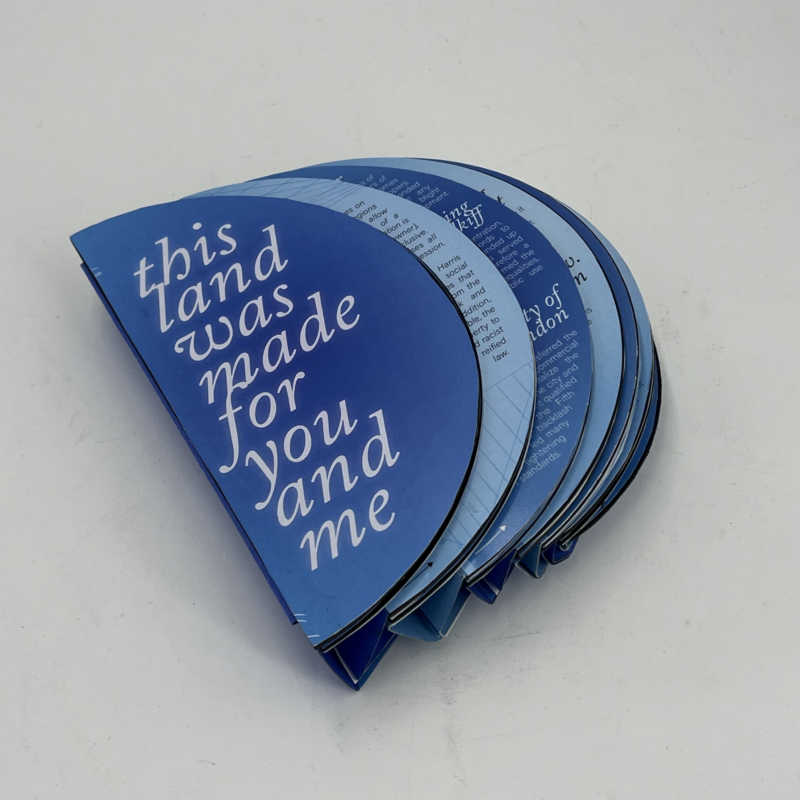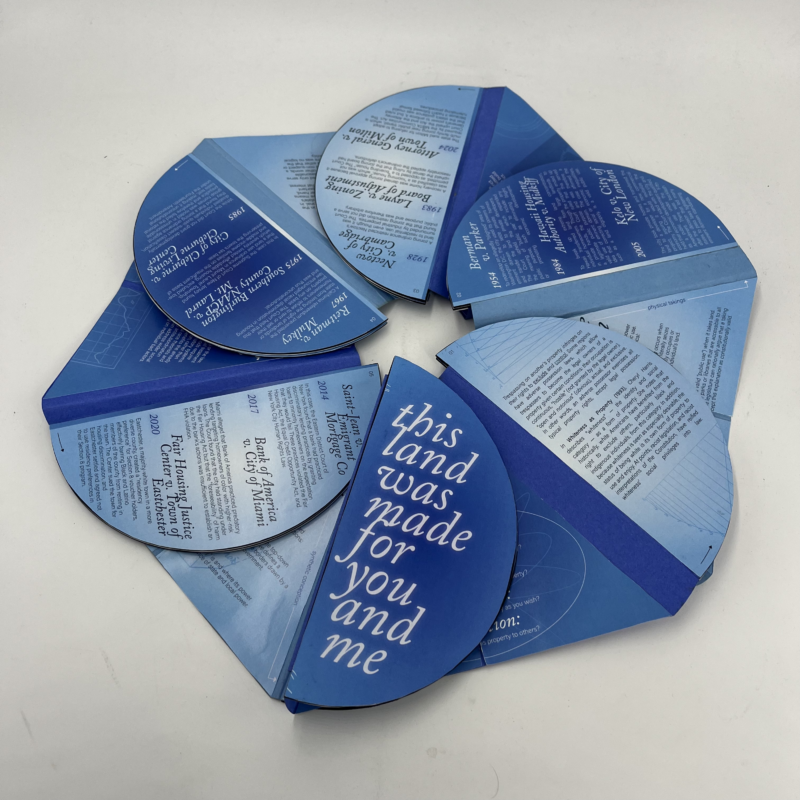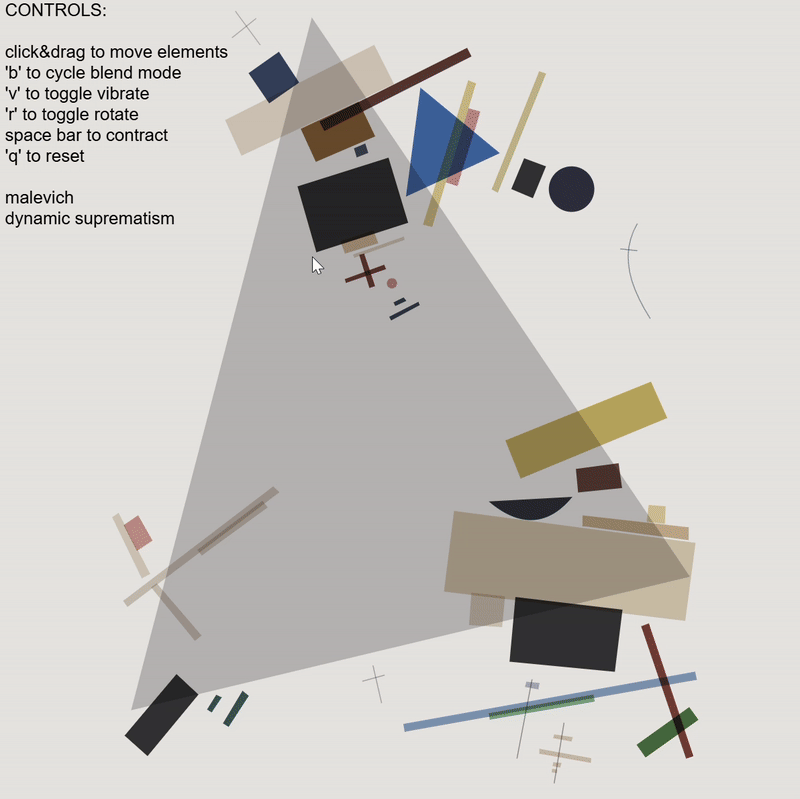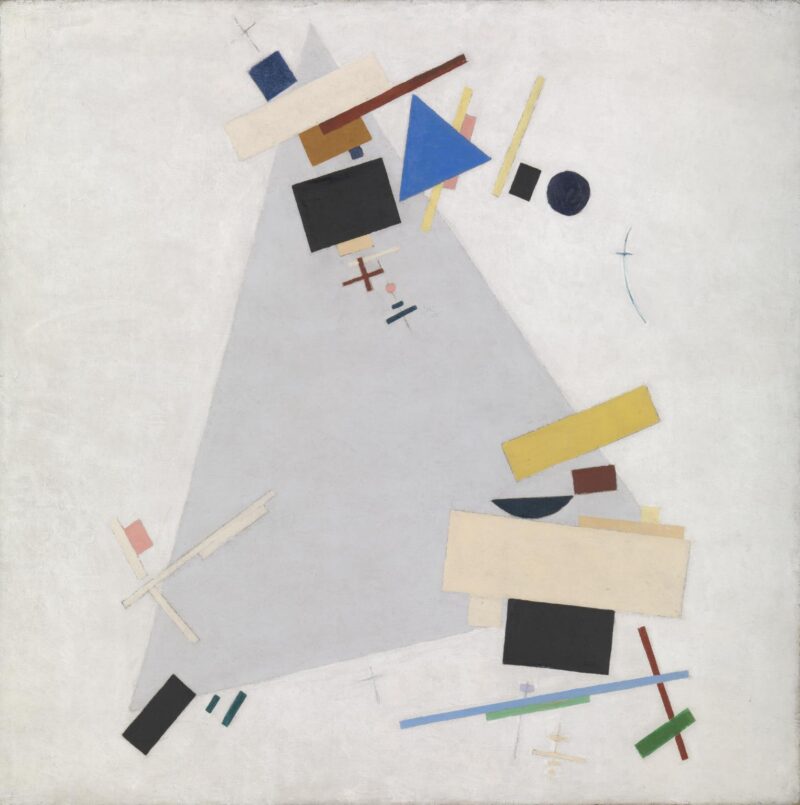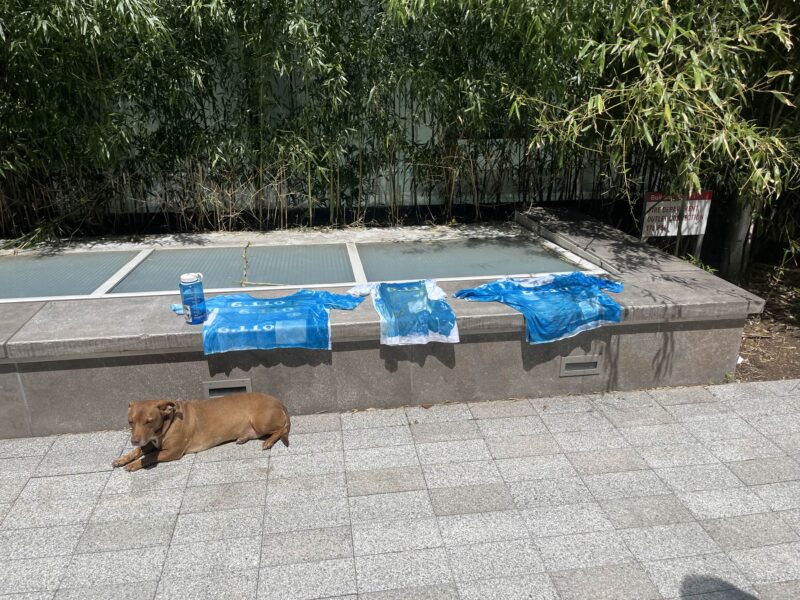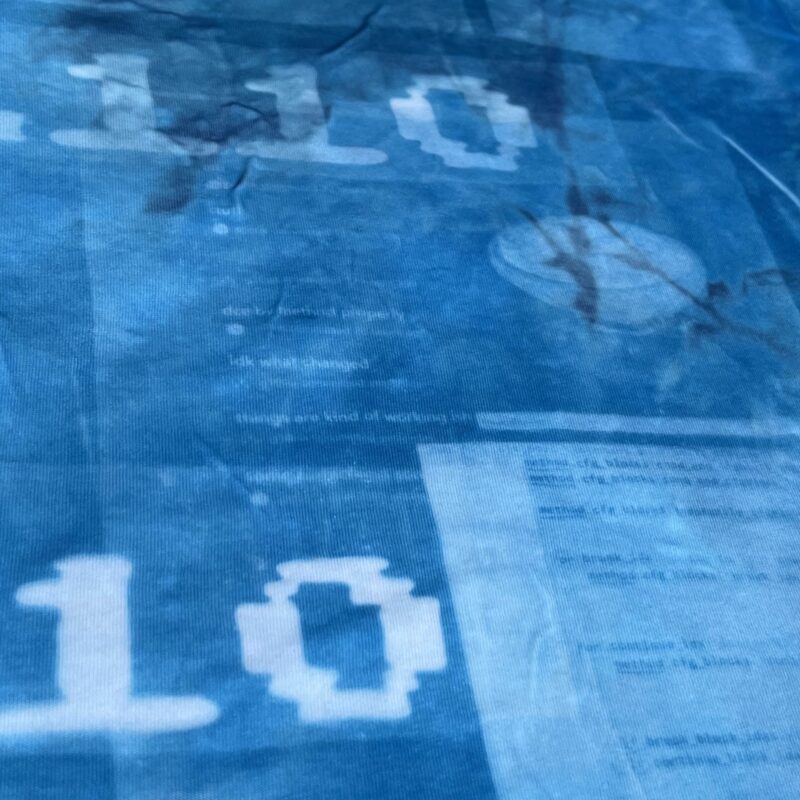
reviewing my classes this semester by Gloria Z. '26
but unthoroughly
This semester, due to a careening series of events01 decided I could finish both my design and cs majors + uncertainty about post-grad plans , I took an ill-advised courseload of 8 classes, totaling 96 units. In the spirit of procrastinating finals studying, here are my thoughts on each of them :-).
(1) incredible, spectacular, no notes
These were my favorite classes this semester! I found them really rewarding, with a generally fair amount of assignments, and they covered material that I had little to no exposure to beforehand.
11.067: Land Use Law and Politics: Race, Place, and Law
This course surveyed US property law through a legal and social justice lens; specifically, we covered property, land use, equal protection, civil rights, fair housing, and local government law. Each week’s readings consisted of a set of relevant court cases, plus the occasional theoretical or philosophical legal reading. We went over a lot of key constitutional rights, challenges, and debates, and apart from those questions being very… relevant in recent months, it felt really cool to have the tools to understand and analyze key court cases in American history. The professor was also a great lecturer and very engaging!
For our final project, my teammates Sabine, Emily, Amira, Ari, and I made this unfolding zine that summarized some of the core themes of the class:
MAS.s63: Recreating the Past
Taught by members of the Future Sketches group in the Media Lab, this class centered on computational and new media art from the past few decades. Every week, we learned about a specific artist or set of artists, then, as homework, recreated an artwork by them using modern-day frameworks and computational tools. I feel like the class really made me understand what was so entrancing about computation back when computers were first being developed — things that feel completely normal to us now like motion graphics were completely new and magical at the time. I got to try out new frameworks like p5.js and paper.js and make some neat stuff! It was also a tiny class, only about 3 students each time, so each session felt more like a discussion and shared art appreciation session than a traditional lecture.
(2) so frustrating but so rewarding
These were my two coding/engineering classes this semester, and they definitely delivered on that front. I’ve never stared at VSCode so much in my life.
6.5840: Distributed Computer Systems Engineering
A distributed system is a collection of computers that interact with each other in order to achieve some goal. For example, the Google search engine uses distributed technologies, because there’s no way one computer can handle that much search traffic; instead, a massive network of computers communicate in order to serve millions of consistent search results per second. However, this interconnectedness brings about a host of problems: what happens if messages between computers are dropped, duplicated, or interfered with mid-send? What if some computers crash and others have to 1) recognize the crash and 2) pick up the slack?
Turns out, a lot of interesting algorithms and network architectures have been developed in the past thirty years to address these issues, and this class consisted of a series of labs in which we implemented some of those solutions. In particular, the most difficult system by far to implement was called Raft – a “consensus” algorithm that enables a set of computers to agree on a shared sequence of client operations. Omitting the grimy technical details, I’ll just say that Raft was extremely hard to debug due to the nondeterministic(ish) nature of the program and sheer length of debug logs… I have never felt so defeated by a single file with less than 700 lines of code. However, we made it through 🤞🤞 with a better appreciation of the technologies underpinning the fast and speedy internet we all take for granted. I also learned (somewhat) how to code in Golang.
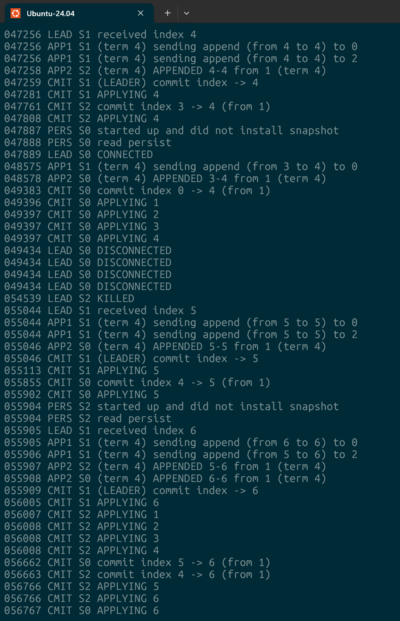
debugging raft was like this but imagine it goes on forever
6.1100: Computer Language Engineering
In this class we wrote a compiler! You ever wonder how something like this:
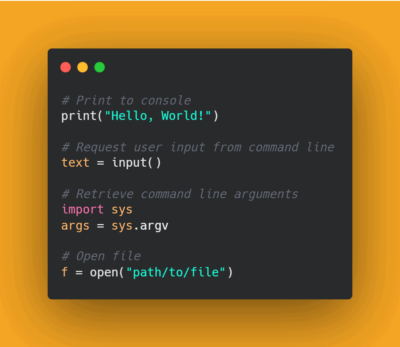
generic code snippet
gets turned into something that a computer can execute? After all, a computer is just an amalgamation of cleverly arranged circuitry; it has no notion of what an “if statement” or “for loop” is. Thus, a compiler is a program that does the hard work of translating “high level” code such as Python or C++ into hardware-specific Assembly code and subsequently a binary executable (1s and 0s).
This entire class consisted of one project (the eponymous compiler), so the difficult part was structuring that large, complicated codebase in a way that was 1) flexible 2) easily maintainable and 3) relatively quick to implement. It was honestly a lot of fun – frustrating at times, but (at least for me) nowhere near as soul-crushing as distributed systems was. It helped that my teammates Selena and Andrew were really great! This was also my first time using Rust. In celebration of finishing the class, we made custom cyanotyped shirts :-).
(3) what the box said
These classes were fine; they delivered on what they promised, so I don’t really have any specific gripes or praises. I’m glad I took them!
4.250: Introduction to Urban Design and Development
This is the intro undergraduate DUSP class, surveying topics such as street networks and neighborhoods, the history of zoning in the US, and city planning movements like New Urbanism. I think this is one of those classes that is really necessary and important but maybe not so scintillating on a daily basis (as intro classes often are). However, I did really enjoy some of the guest lectures, particularly one that focused on the failures (or perceived thereof) of public housing projects in the US. At the end of the semester, we went on a walking tour of two nearby sites – Cambridge Crossing and the Seaport District – where the actual city planners who worked on those projects came and talked us through the decisions behind each location’s developments, which was really insightful.
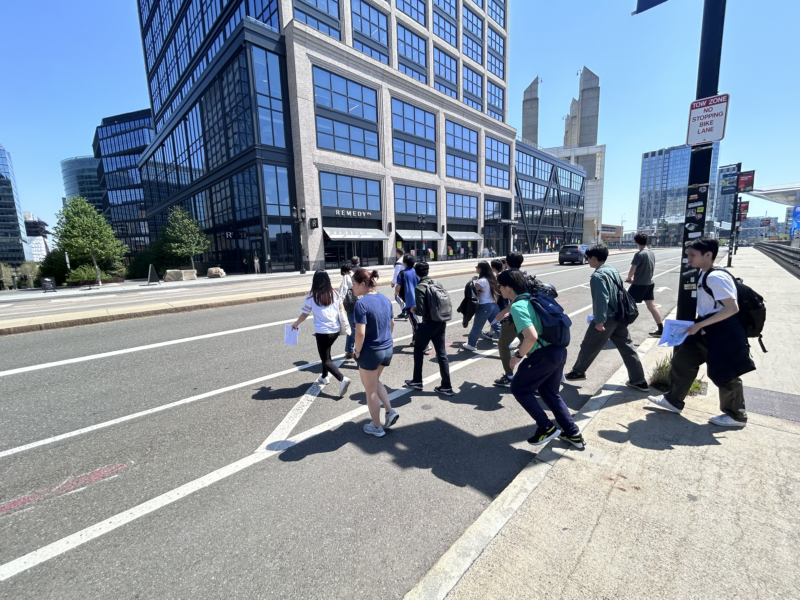
the entire class (including professor and guest planner) jaywalking across a 6-lane highway 😊
11.c35: Interactive Data Visualization and Society
In 11.c35, we worked in teams to create a web-based “visualization journey” (think journalism-style interactive data stories, but not nearly as polished) about housing trends in the greater Boston area. The class was partnered with Metropolitan Area Planning Council (the regional planning agency in this area), so MAPC representatives would provide feedback periodically on the direction of each project. Our team focused specifically on the subtheme of corporate speculation, so our data visualizations centered on ballooning rent prices, eviction rates, and the impact that corporate landlords have on the housing market. Overall it was a fun class, and although I wasn’t as excited about the day-to-day work of web development, the housing concepts and design/storytelling aspects of the assignments were pretty new and interesting.
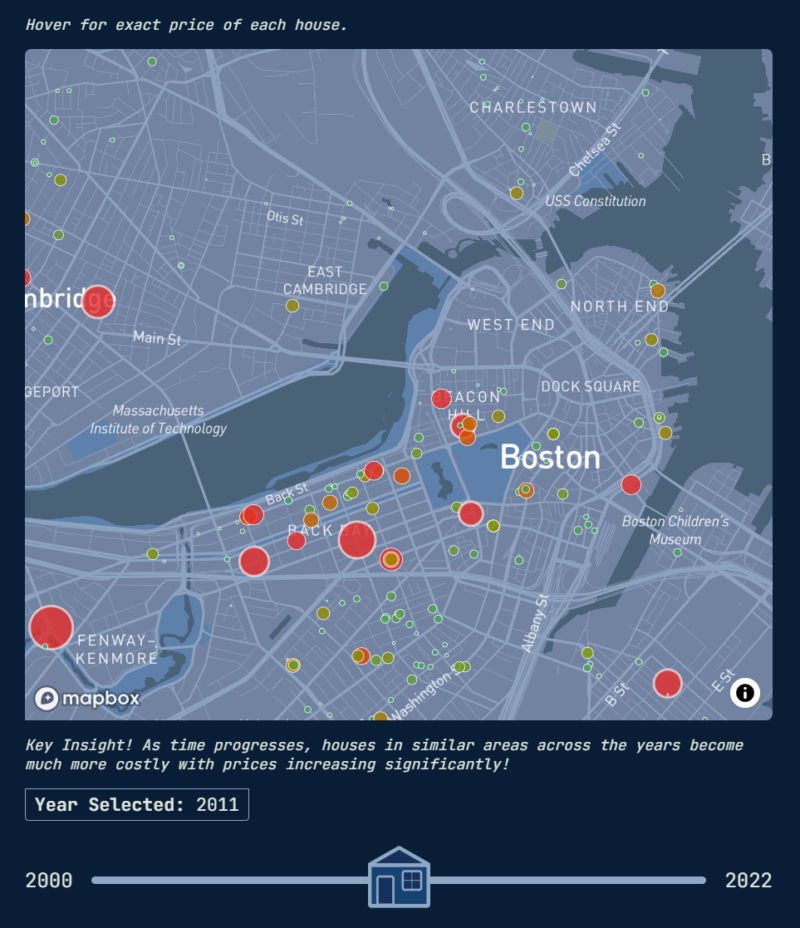
an example viz we made of residential sale prices
(4) good classes I’m sure but I just wasn’t that into it
18.212: Algebraic Combinatorics
Unfortunately I could not tell you much about algebraic combinatorics despite having taken this class… I do think the material was interesting enough, but I just didn’t have the time or energy to fully appreciate it beyond doing the (only four) problem sets.
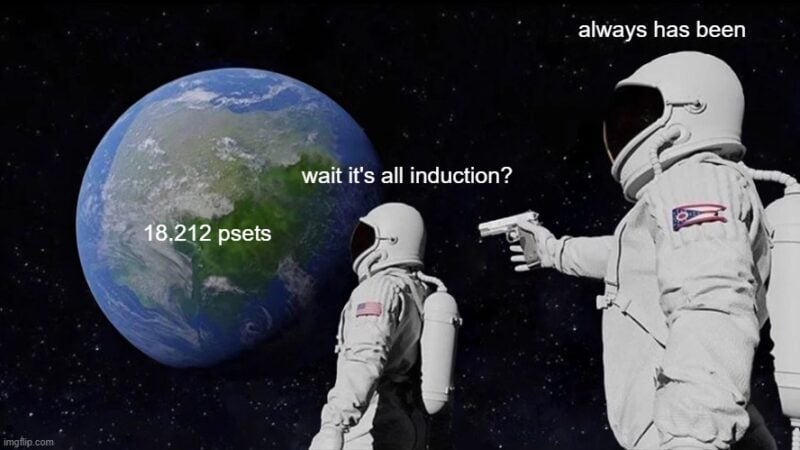
i made this meme are you proud :D
6.4110: Representation, Inference, and Reasoning in AI
Broadly, this class explored various ways to represent the process of “decision-making” with feedback and controls, primarily through the lens of robotics. There was a lot of probability and a lot of graph search! Again, interesting concepts, but it kind of fell by the wayside as my other classes took priority.
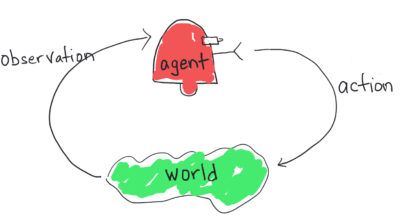
image from the course website
Overall, I thoroughly enjoyed my classes this semester, given the constraints (needing to get all my units in so I can graduate)!! Some stats:
- Energy drinks consumed: only 1 😼
- Sitting (!) naps taken in Rotch Library: 4
- New buildings unlocked: 2 (bldg 9 for 11.067, bldg 54 for 6.5840)
- Crash outs over debugging Raft: 3
- Missed 6.4110 lectures: many (they were at 9:30AM…)
- decided I could finish both my design and cs majors + uncertainty about post-grad plans back to text ↑
